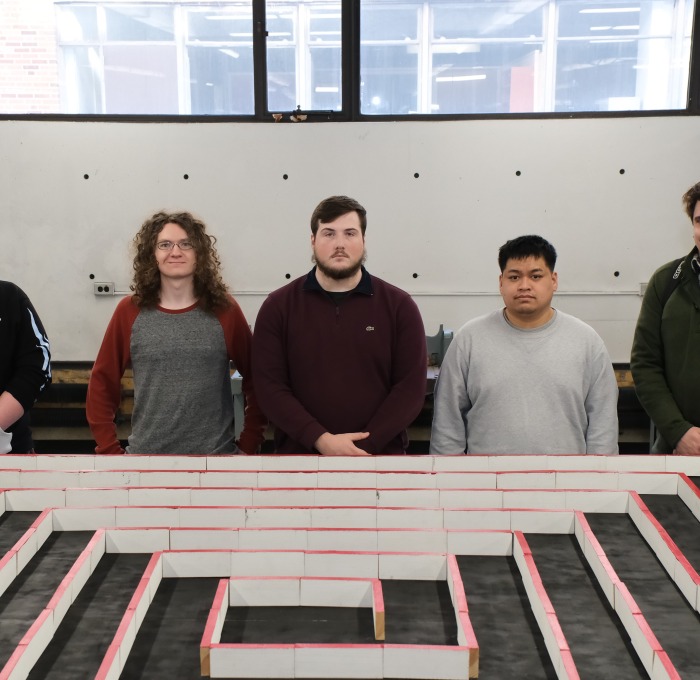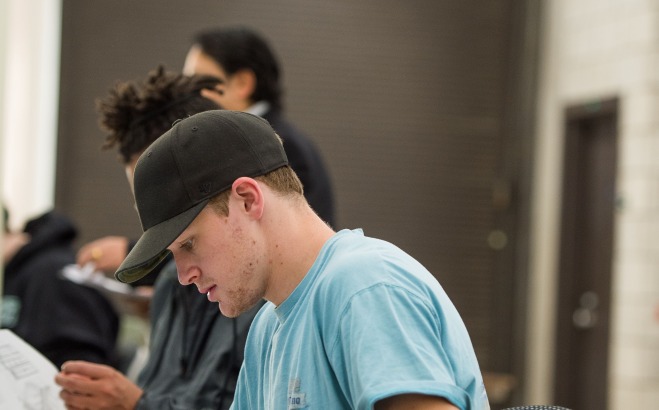
In Short
This program leads to a bachelor of science degree in Engineering Technology (120 credit hours) with concentrations of study offered in Architecture, Electronics Engineering Technology, Energy Management Engineering Technology, and Manufacturing Engineering Technology.
Concentrations
Program Overview
The Engineering Technology Program focuses on the hands-on implementation of engineering principles supported by a strong knowledge of mathematics and science. You'll apply learned competencies to design products, processes, and systems.
The program leads to a Bachelor of Science degree in Engineering Technology (120 credit hours).
Graduates are qualified to pursue licensure as a professional engineer.
Program Mission
The mission of the Engineering Technology program is to prepare knowledgeable and competent professionals for the engineering/technical positions in industry. Collaborative and interactive teaching methods foster the use of critical thinking to build a strong foundation for the practice of holistic engineering technology and also promote lifelong learning.
Program Vision
Our vision is to develop individuals who are innovative in problem solving, understand the inherent value of design, have high ethical standards, are skilled in communication, are cognizant of their responsibility for a sustainable future, and are responsive to change.
Experiential Opportunities
Internships
Study Abroad
Curriculum and Other Information
- BS, Engineering Technology - Program information from the University Catalog.
- Four-Year Plan of Study
Upon graduation from the Engineering Technology program, our students will be able to:
- Apply knowledge, techniques, skills and modern tools of mathematics, science, engineering, and technology to solve broadly-defined engineering problems appropriate to the discipline
- Design systems, components, or processes meeting specified needs for broadly-defined engineering problems appropriate to the discipline
- Apply written, oral, and graphical communication in broadly-defined technical and non-technical environments; and an ability to identify and use appropriate technical literature
- Conduct standard tests, measurements, and experiments and to analyze and interpret the results to improve processes
- Function effectively as a member as well as a leader on technical teams
- Demonstrate an appreciation of professional, ethical, and societal responsibilities
- Demonstrate an appreciation of commitment to quality, timeliness, and continuous improvement

